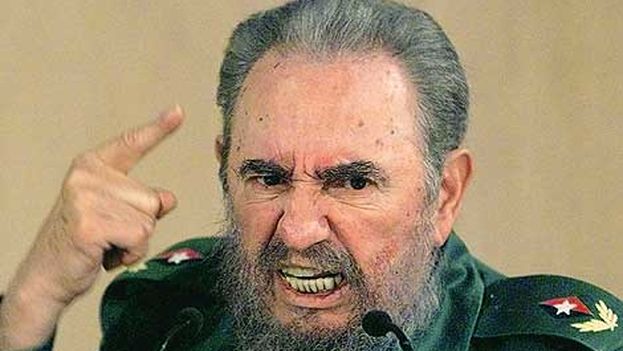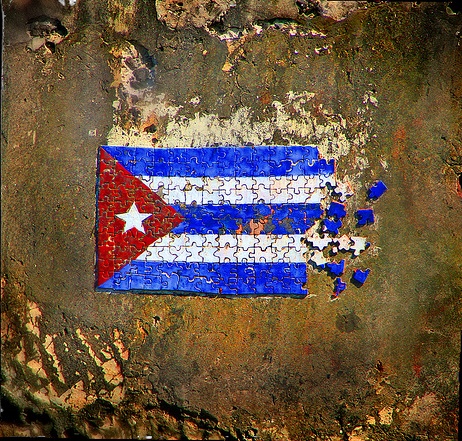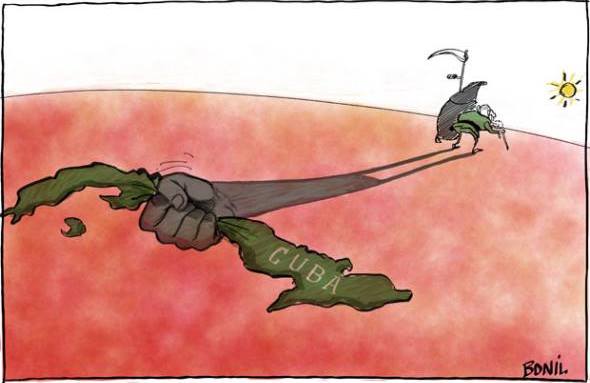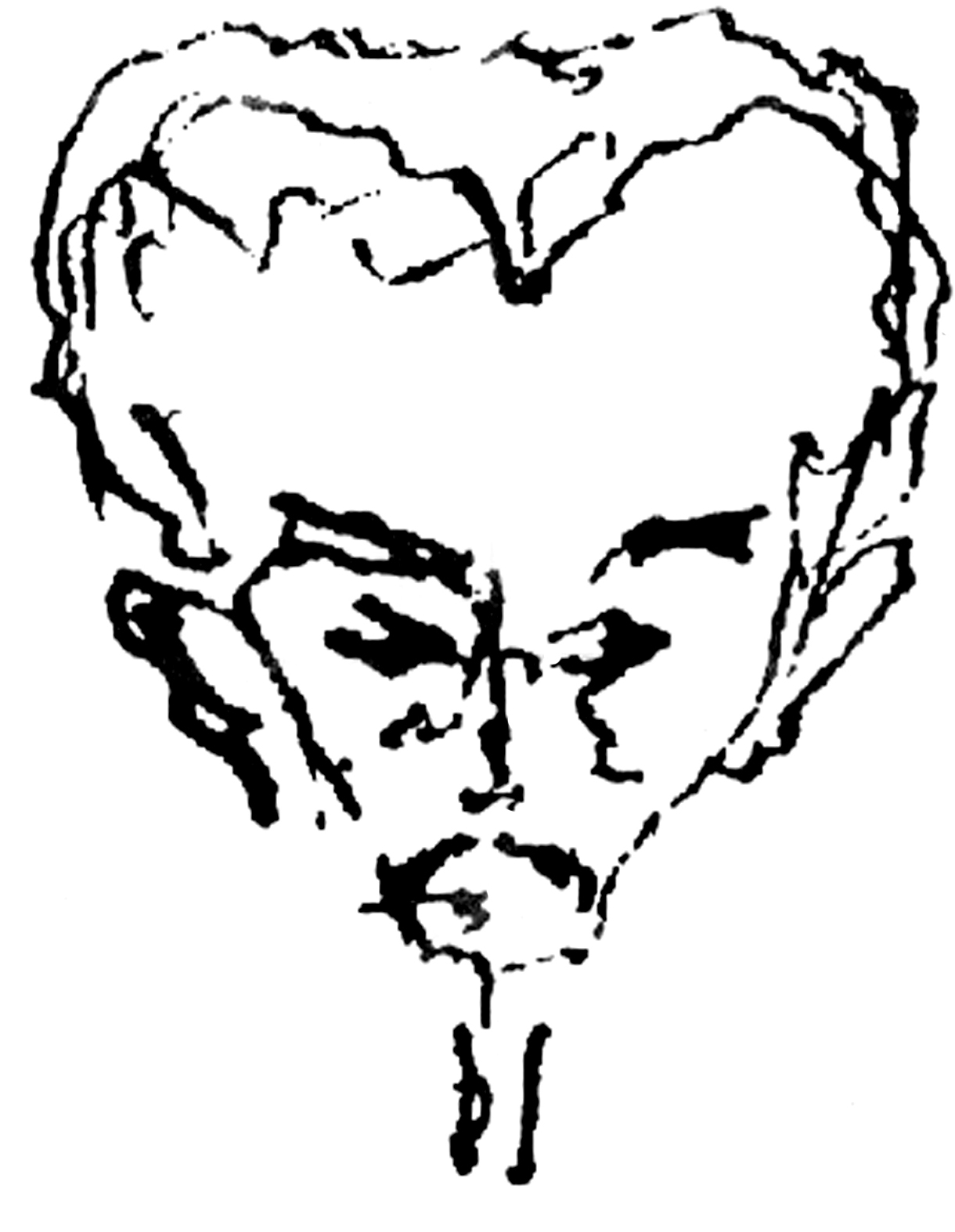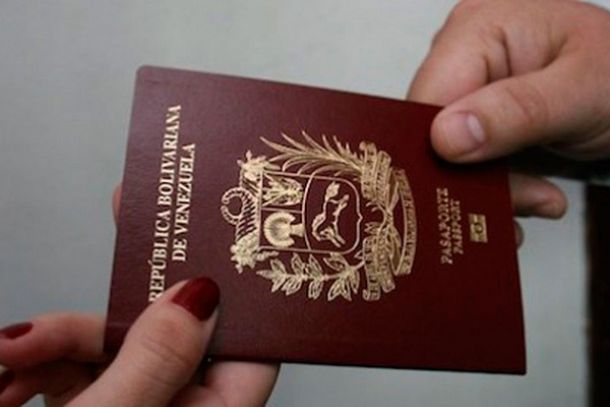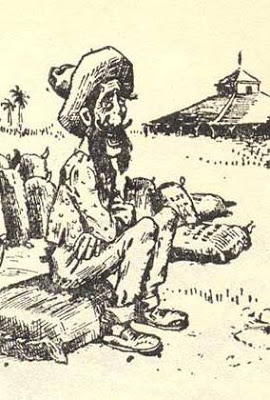Jeovany Jimenez Vega, 29 November 2016 — The dictator Fidel Castro died last Friday at the age of 90. The extensive news coverage was to be expected. After all, he was both the object of the most romantic, idealized love and the most scathing, caustic hatred. Gone was the man who, over the last six decades, had left his imprint on Cuban history, a man who was unquestionably one of the most controversial figures of the twentieth century.
There is little to say that has not already been said about this tyrant, so there is little point in now rehashing extensive accounts of his life. It seems more prudent to ask a basic question that might summarize what imprint this man had on Cuban society. continue reading
What did Fidel Castro leave behind? What did Cubans inherit from his more than half-century legacy? The answer is not always a simple one because almost nothing is simple in Cuba, where the reality itself is often tinged with varying shades of light and shadow.
From Fidel Castro’s point of view, he leaves behind a country with virtually no illiteracy and an educational system accessible to everyone everywhere within the country’s borders. It seems idyllic, especially in light of the repeated positive assessments by UNICEF. But let’s not forget an essential point: Not everything here is so rosy.
There is only one centralized, compulsory system of education, imposed on everyone, which provides no alternative. Parents cannot choose what kind of schooling their children will receive. Every day children must swear an oath: “Pioneers for Communism; we will be like Che!” They are taught by educators suffering from enormous personal frustration. In exchange for their enormous efforts, teachers receive paltry salaries, working under the most inadequate of conditions in schools that are in near ruin. Additionally, every child is subjected to political indoctrination, which is responsible in large part for the unfortunate loss of civic culture paralyzing Cuban society today.
And what is there to say about public health? The country which boasts of its achievements in biotechnology, universal childhood vaccination and state-of-the-art clinics catering to foreigners — comparable only to those reserved for exclusive use by elite government officials — is the same country whose neighborhood medical clinics stand empty and whose pharmacies suffer from a constant shortage of medications.
Its excellent doctors are paid poverty-level wages, must deal with unimaginable scarcities and work under deplorable conditions in hospitals which are structurally unsound and which, in many instances, should be demolished.
The government of Fidel Castro has always relied on its medical missions to more than sixty countries — “in search of the world’s poor” — as its trump card. Under the heel of Raul Castro, those same missions greedily skim 70% off the salaries of its overseas medical personnel.
This slave trade generates between 8 to 10 billion dollars a year. Meanwhile, the government shamelessly rails, with characteristic cynicism, against worldwide capitalist exploitation.
The very serious crisis in Cuban sport is so obvious that it is scarcely worth discussing. The defections of more than two-hundred top-flight baseball players to the “brutal north” in search of better opportunities in recent years are a slap in the face of the deceased, who used sport as a weapon of propaganda. But the humiliating and mediocre performances of a wide range of athletes in international arenas suggest that things could hardly get much worse.
And what has the “invincible” comandante left behind on the field of economics? Anything one might say on such a potent and cruel topic risks sounding redundant. The profound economic damage resulting from the endless trail of Fidel Castro’s erratic policies continues to have ongoing repercussions. So absurd and systemic was the damage that it has become insoluble, at least under the current rules of the game imposed by the military dictatorship, which subordinates everything to its perverse predilection for control.
In spite of having enjoyed the world’s most generous subsidies — courtesy of the former Soviet Union —for its first three decades, Cuba has never experienced a period of real economic independence or credible growth during the entire Castro era. It later suckled on the nipple provided by Hugo Chavez, who always had to cradle the drooling mouth of the silly child because it never learned to support itself.
It is an undeniable fact that the comandante’s government, like that of its successor, never managed to overcome its prodigious parasitic habits. Its survival always depended on an outside supplier. In short, the dictator leaves behind a desolated country, perpetually in the red and without a a credible development plan in sight.
Did the comandante opt for persuasion, for convincing argument, in order to govern? Did he exercise his power through normal, healthy and necessary confrontation — free of judgment — with a dissenting legislature in which opposition was a daily reality, as in all free societies? Certainly not. From the very beginning, he penalized difference of opinion and buried the press under a blanket of hermetic censorship.
He monopolized national editorial policy and all mass media, maintaining an iron-fisted stranglehold which he never eased. Under his totalitarian dictatorship there was never anything that might be called a parliament. Instead, a circus of marionettes met once a year to give consent — always by unanimous vote — to orders previously approved by the Central Committee of his Communist Party.
The shocking human rights situation has been a constant for the entirety of the Castro regime. It represents a very long saga of systematic abuse, a logical consequence of having no separation of powers. The noteworthy indices of political repression have been the immutable backdrop of Cuban society for more than five decades, though they have become something of a scandal since the thaw in relations with the United States was announced. The dearly departed leaves behind, as testament to his despotism, about a hundred political prisoners in jail cells, to say nothing of the thousands who preceded them.
The comandante also bequeathed to Cuban history four great waves of emigration, confirming his scandalous failure as a ruler. Young people fled in terror from their enslavement, an eloquent expression of an entire people’s discontent. Well organized exoduses were augmented by an endless string of drownings from sunken rafts in the Florida Straits, a deeply painful saga for the Cuban people caused, once again, by Fidel Castro’s absolutism.
But let’s try to shed light on at least one small aspect of the genius which frontmen and toadies attribute to him. Let’s look at the tactical “solutions” the tyrant imposed as well as their practical and permanent long-term consequences. For example, no sooner had revolutionaries won than they found themselves with a housing problem. Did the comandante promote a coherent national program of building new housing to meet the demand? No. It was easier to steal long-held properties from their rightful owners through to the Urban Reform Law. The consequences? Even today, half a century later, housing remains one of the country’s most serious problems and perhaps the hardest one to solve.
In 1959 the newly triumphant comandante also found himself facing the problem of land distribution. But once the Agrarian Reform Law was adopted, did it create the conditions necessary for small-scale farmers to flourish? Did it vigorously stimulate agricultural and livestock production throughout the country? No. Instead it imposed one absurd regulation after another in order to impede, by any means necessary, agricultural producers’ financial success. It created multiple mechanisms to limit their profits and unleashed the Attorney General’s watchdogs on any misguided soul who had acquired wealth by dint of his own legitimate efforts.
The consequences? Even today, meager harvests rot in the fields thanks to the well-documented irresponsibility of the Empresa Nacional de Acopio (National Harvest Company) — an ineffective monopoly and the sole entity in charge agricultural harvesting. Even today, as an indefensibly large proportion of the country’s arable land remains plagued by maribu weed, Cuba imports millions of dollars worth of food, including — of all things — sugar. Fields lie untended due to, as always, the whims and stubbornness of the country’s rulers. Meanwhile, shortages of basic staples set new records week after week.
An uninterrupted mass exodus began in early 1959, most notably of professionals, when a segment of the population felt disappointed by the first populist measures. What did the newly-inaugurated prime minister, Fidel Castro, do to halt or discourage it? Did he improve working conditions or offer better salaries to those professionals? No. He chose, as usual, to restrict the the right of all Cubans to travel freely for decades and prohibited any overseas travel that did not have official authorization. The consequences? The island literally became one vast prison, serving as Fidel Castro’s private gulag for more than fifty years. During that time the despot deprived us of the universal right to freely come and go from our own country.
It is also worth remembering one fateful moment: When faced with the challenge of a democratic election in 1960, did he fulfill the promise he made in the Sierra Maestra to hold elections after eighteen months in power? Never! Instead he coined that celebrated slogan “Elections for what?” The unfortunate consequences of that failure translate into an absence of political freedom today. The consequences? Since then, there has been a complete disregard by Cuba’s military/political elite for our natural right to free thought and for many of the most basic human rights, an offensive contempt resulting from, above all, the twisted personality of Fidel Castro.
Faced with the persistence of tens of thousands of private businesses and family micro-enterprises throughout the country, did the comandante develop a parallel national system of consumer services that would compete on an equal footing with those of the extensive private sector? Was their promise finally fulfilled, providing better services to the people? Absolutely not. Instead, he launched the notorious Revolutionary Offensive in March 1968, which in a few months swept away the legacy of millions of entrepreneurs who had amassed their fortunes as a result of generations of honest work.
This wave of brazen confiscation, followed by widespread institutional laziness, led to a dramatic and irreversible decline in the food service industry and every possible consumer service from Cabo San Antonio to Punta Maisí. The consequences? Even today, this sector remains one of the most eloquent testimonials to the inefficiency and corruption of a system as centralized as that of Cuba.
In other words, this bearded reprobate always opted for the easiest, most mediocre, most simplistic solution — coincidentally, usually the one he had come up with — that in the long run would lead to the worst consequences.
Where is the supposed genius in leading the country into absurdist economic ruin, trampling on people’s human rights, putting power in the hands of an arrogant oligarchy with bourgeois tastes, creating a disturbed, dysfunctional society and turning it into a quagmire of moral ruin? What fanciful argument could purport that a life so aberrant and demonstrably harmful to the Cuban people was virtuous?
Other than stores in several countries being closed, there was nothing memorable about last Friday, November 25, except for the day’s top story. Nothing of consequence will happen in Cuba after this date because it marked an outcome for which the dictatorship has had sufficient time to prepare. The military will, for now, keep everything under control and business will continue as its usual.
The tyrant died but he left behind an intact dictatorship, with an organized army of henchmen and repressors well-trained in all manner of coercion, intimidation and blackmail. It acts like an eager, arrogant hitman who has his finger on the trigger, always at the ready. In his profound alienation, he would not hesitate to calmly pull it as soon as the order was received.
The dictatorship’s capacity for repression remains intact; the people remain totally defenselessness against the divine designs of the dictator on duty. We carry with us the execrable consequences of massive social indoctrination, which will require the passing of more than a generation to overcome its imprint of immorality once freedom finally arrives. Society still lacks the vital independent mechanisms to seriously address the true aspirations of the Cuban people.
All this notwithstanding, there have been many messages of condolence from a wide range of political and religious figures including Vladimir Putin, Mikhail Gorbachev, Xi Jinping, Ayatollah Seyed Ali Khamenei, Frei Betto and Pope Francis. Other diverse figures include soccer star Diego Maradona, every leftist president from Latin America and King Felipe of Spain.
There will undoubtedly also be hundreds of condolences from all over the globe, from people of varied ancestries who nevertheless all have one thing in common: none have personally suffered the consequences of the Stalinist madness of the deceased.
None of these grieving mourners were the father of a young man who was shot. None were humiliated for a being believer or a homosexual and sentenced to hard labor in the Military Units to Aid Production (UMAP). In fact, not one of them will even know what the UMAP was. None of them were forced to support their families on twenty dollars a month or experience the hell of a ration book.
None of these very disturbed friends of the dictator had family on the ’13 de Marzo’ tugboat; none was sentenced to more than 20 years in prison during the Black Spring; none has seen their mother, their wife or their daughter dragged by the fascists hordes during a march of the Ladies in White; none is a dissident besieged or beaten with impunity by the Cuban political police; none has been imprisoned for weeks or months without even knowing what charges are imputed to them, and then released without trial or further explanation; none has been expelled from their job due to political differences nor had a child expelled from their university career for the same reason.
None suffered a raid on their home without having engaged in punishable offenses; none has witnessed the degrading repudiation rallies organized by the political police and the Communist Party of its Commander-in-Chief against peaceful opponents. In short, none of them is surnamed Zapata, Payá, Boitel, Soto García, or Pollán.
But the inevitable finally occurred and dust returned to dust. Fidel Castro exerted absolute power using brutal methods for half a century. His achievement, such as it is, was that he always appealed on the most mean-spirited, despicable and lowly aspects of human nature. Camouflaged by his extraordinary capacity for simulation and guided by a highly refined ability to discern a person’s basest instincts, he manipulated people for his personal advantage in order to satisfy the pathological impulses of his deeply narcissistic personality, his insatiable egotism and an uncontrollable need for recognition of his boundless megalomania.
The despot has left to face God’s judgement but leaves behind a painful legacy. The monster has died but the damage he caused remains. In spite of all this, Cuba will one day find the true pathway toward democracy. While we will try to never again hate, we are obliged not to forget. The dictator leaves this world, as many of his kind often do, without summary judgment, without having faced earthly justice. But the tyrant will never escape to the moral judgment of a people who have, at least so far, not definitively absolved him. History, however, has already firmly condemned him.
